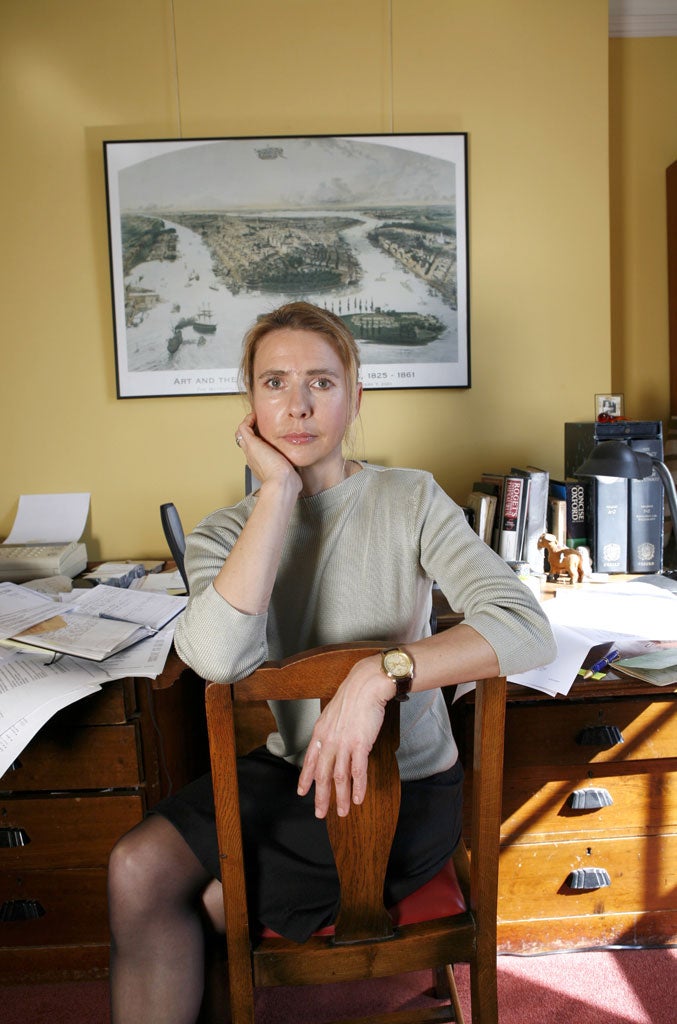The New Republic, By Lionel Shriver
More damp squib than explosive device, this novel of journalists and terrorists fizzles out

Your support helps us to tell the story
From reproductive rights to climate change to Big Tech, The Independent is on the ground when the story is developing. Whether it's investigating the financials of Elon Musk's pro-Trump PAC or producing our latest documentary, 'The A Word', which shines a light on the American women fighting for reproductive rights, we know how important it is to parse out the facts from the messaging.
At such a critical moment in US history, we need reporters on the ground. Your donation allows us to keep sending journalists to speak to both sides of the story.
The Independent is trusted by Americans across the entire political spectrum. And unlike many other quality news outlets, we choose not to lock Americans out of our reporting and analysis with paywalls. We believe quality journalism should be available to everyone, paid for by those who can afford it.
Your support makes all the difference.Lionel Shriver's latest novel is set in Barba, a fictional peninsula which juts out (like a beard) from Portugal's southern border. No one would take much notice of it but for the existence of a home-grown terrorist organisation, which has claimed any number of atrocities in the name of Barban independence. It's also the reason why a group of foreign journalists is stationed in the dusty capital, Cinzeiro, quarrelling as they wait for the next bomb.
The latest addition to this little band is Edgar Kellogg, a rookie American foreign correspondent with a thin file of clippings. Kellogg has abruptly switched careers from corporate law to journalism. He gets a lucky break when a contact from school days, now a star reporter, puts in a word for him with the editor of the National Record in New York. The editor has a gap to fill after his Barban correspondent, Barrington Saddler, has gone missing amid rumours that he's been abducted or murdered.
The set-up – hapless hack arrives in backwater about which he knows next to nothing - is familiar. Evelyn Waugh's Scoop is the prototype but Shriver's novel takes aim at international terrorism as much as journalism. Her terrorists, the Daring Soldiers of Barba, attack targets all over the world while their political wing pours out the usual rhetoric about colonialism and liberation. Like any modern conflict it has religious and ethnic dimensions, with the Catholic terrorists calling for the expulsion of Muslim immigrants from North Africa.
The terrorists' acronym, SOB, offers a flavour of Shriver's tone in this tale of jaded foreign correspondents and ranting ideologues. So does the name chosen for the SOB's political wing: O Creme de Barbear, which translates literally as "shaving cream". It quickly starts to feel a trifle heavy-handed, but then this is not a novel that delivers subtlety or unexpected insights. Kellogg is a typically insecure reporter, but his assignment enmeshes him in rivalries with more successful men. The missing Saddler exists chiefly in Kellogg's imagination, assembled from the anecdotes told by other hacks and the exotic possessions left behind in his palatial Barban mansion.
There hasn't been a single SOB atrocity since Saddler's disappearance, but it takes Kellogg an unconscionable amount of time to wonder whether there is a connection. Nor does he immediately grasp the significance of an oddly-shaped metal pipe and the stack of surgical gloves he finds in Saddler's mansion. Shriver revels in writing about her backbiting reporters but it's hard to imagine a bunch of seasoned hacks proving quite so gullible.
The novel is poorly constructed, relying on stagey devices and a deus ex machina when the plot reaches what might otherwise have been an impasse. Shriver says nothing new about journalism or terrorism, and it isn't a surprise to discover that the novel was actually written before the 9/11 attacks. It's finally been published on the back of Shriver's success with So Much For That and We Need To Talk About Kevin, but is a much less accomplished piece of writing. There's nothing wrong in principle about writing a satire on international terrorism, but The New Republic misses its mark. Sadly, it doesn't amount to much more than another novel about a bunch of pissed old hacks.
Joan Smith is Political Blonde: www.politicalblonde.com
Join our commenting forum
Join thought-provoking conversations, follow other Independent readers and see their replies
Comments